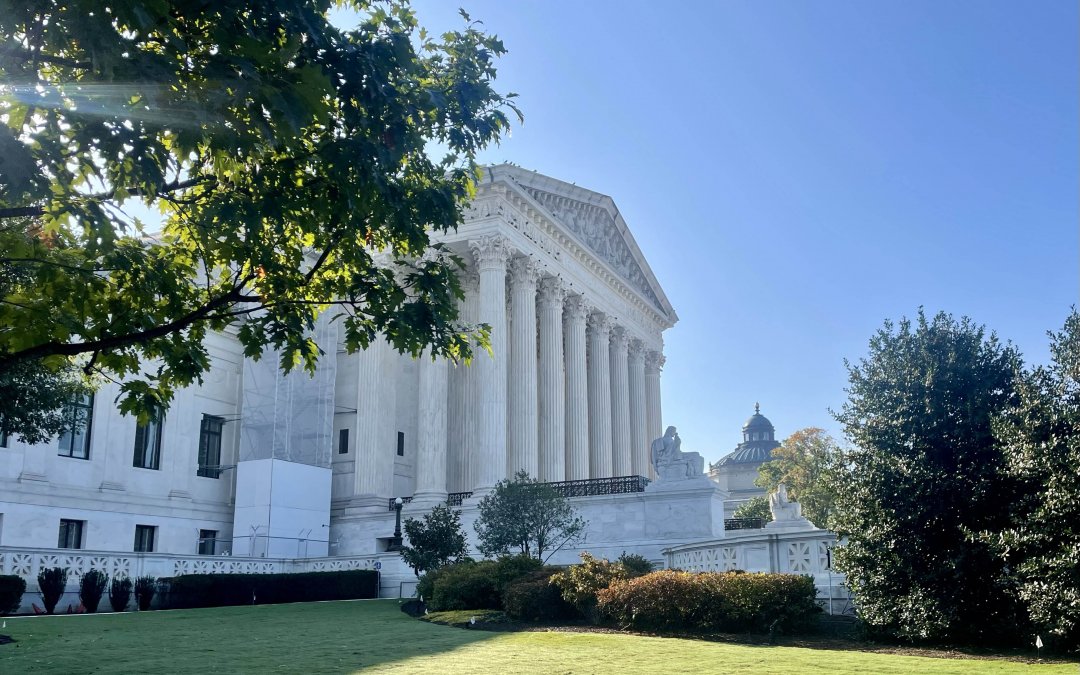WASHINGTON — The Supreme Court mulled over the question of standing on Wednesday — whether under the Americans with Disabilities Act, individuals can sue places of accommodation for lacking disability accessibility information, even if they don’t intend to stay.
The case, called Acheson Hotels v. Laufer, follows Florida resident Deborah Laufer, who has physical disabilities and visual impairments. Laufer searches for hotel websites that fail to include sufficient information about accessibility, which is in violation of ADA. Then, she sues.
Since 2018, Laufer has sued over 600 hotels without intending to book a room. Wednesday’s arguments zeroed in on one of these lawsuits — Acheson Hotels, which owns and operates the Coast Village Inn and Cottages in Maine, whose online reservation system Laufer accessed.
Laufer, and others like her, test hotel websites for noncompliance by putting themselves in a position to experience discrimination.
“Without testers going out there and doing the work, it’s unlikely that the ADA will be enforced,” said Michelle Uzeta, the deputy legal director of Disability Rights Education & Defense Fund, in an interview. “That’ll result in ongoing barriers in the community, increased noncompliance.”
To have standing, there has to be injury. Adam Unikowsky, the lawyer representing Acheson Hotels, argued on Wednesday that Laufer did not face an injury, because she did not intend to book a room.
“She does not face an informational injury, because she has no use for the information she seeks,” Unikowsky said.
Justice Sonia Sotomayor presented a hypothetical to Unikowsky. If someone drives up to a sign that says, ‘No disabled person is welcome,’ they would have faced discrimination, she said.
“What’s different than my going to a website and the website saying nothing about disability, so I know I’m not welcome there?” Sotomayor asked.
Unikowsky disagreed. To have standing, visiting the hotel website would require a purpose, even if the travel plans are not concrete, he clarified.
Erica Ross, Assistant to the Solicitor General Department, said Laufer would have reached a point of injury, if she intended to consider making a reservation. While the Reservation Rule, as outlined in the ADA, provides a right to information, it has to be in connection to making a reservation, she explained.
Uzeta said motive is irrelevant, as “a harm is a harm.”
“The hotel is trying to link harm to a motive, but that just hasn’t been the way the Supreme Court has decided cases historically,” Uzeta said.
Throughout the arguments, lawyers and justices cited Havens Realty v. Coleman (1982), which concerned racial discrimination in housing. In that case, Black testers sued landlords for providing false information due to their race, though the testers didn’t intend to use their services.
The court pondered how to interpret Havens Realty v. Coleman in the digital context. Justice Ketanji Brown Jackson said the court must distinguish between those trying to use a hotel’s online service for booking from those browsing.
Ross confirmed this would be relevant in establishing injury.
“When I’m travel-planning, … I have an ability to look at different websites, even if I’m ultimately not going to that place,” Ross said. “Part of the discrimination is being treated differently with respect to the ability to gather information necessary to make the decision.”
Kelsi Corkran, the lawyer representing Laufer, emphasized the dignitary harm people with disabilities experience when they encounter an accessibility barrier. Havens Realty v. Coleman presents a test that focuses on what people experience on the website, regardless of their motives, Corkran said.
“It’s not just that you’re not getting the information,” Corkran said. “You’re not getting the information for a reason that conveys that you have inferior status in society.”
Justice Elena Kagan asked Corkran to describe the discrimination that Laufer experienced if she didn’t intend to make travel plans. In response, Corkran said the case goes beyond a denial of information, because it concerns the “day-to-day experience of being a disabled person.”
“When Ms. Laufer goes to the website and she sees that she’s invisible. They are not even acknowledging her as someone who might stay there,” Corkran said.
Justice Neil Gorsuch noted that Corkran was “edging right up to” Ross’ test. Standing would require further engagement, like making a reservation, rather than “clicking around,” Gorsuch said.
Throughout the oral arguments, lawyers had to address another looming possibility: the case might not even reach a decision.
In July, Laufer petitioned the Supreme Court to dismiss the case as moot after her former lawyer Tristan Gillespie came under fire for allegations of misconduct. The hotel, which is now owned by a different group, has updated its website in compliance with ADA.
Lawyers agreed the case was “unusual,” since both sides no longer had a legal interest. Kagan pressed this, suggesting the case as “dead as a doornail.” She questioned why the Court had to rule when it could wait for a similar case to return in the future.
Regardless, Unikowsky urged the Supreme Court to come to a decision.
“If the Court is concerned about expending judicial resources, they would ultimately be saved at the end of the day if the Court decides the question presented,” Unikowsky said.


